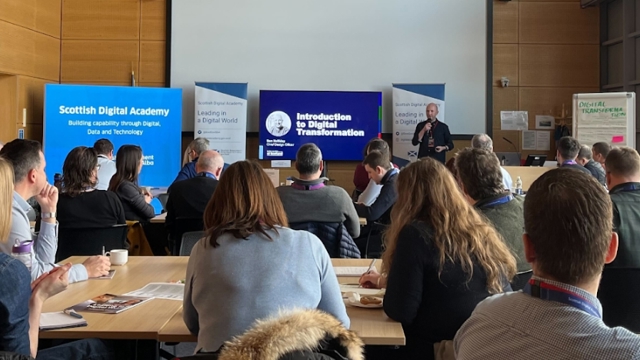Challenge
Social workers are a lifeline to young families and children in the UK, but can be held back by the systems and technology they work with, spending as much as 80% of their time on administration.
The Department for Education (DfE) recognised a need to free up this time, allowing for more direct work with children and families in need. The DfE holds a unique role in the world of children’s social care and hopes to improve outcomes for children by providing a better working environment for social workers.
Solution
Together with the DfE, we ran a discovery into how to optimise technology for social workers and enable better information sharing between partner agencies.
Our discovery began with a rapid literature review, conducting research of children’s social care with system leaders, managers, social workers, multi agency partners and families. We also engaged with DfE policy and digital colleagues to understand the wider policy landscape.
We then carried out desk research, conducted interviews and created mock-ups of digital concepts, speaking to front door staff, social workers, team managers, health visitors and police officers at councils across the country. We varied our research locations to reach a wide range of council types in different regions with different OFSTED ratings to develop the fullest picture possible.
We identified the following opportunities where technology could lead to better social care outcomes for children:
- more effective recording methods for social workers
- improved information gathering at the front door
- better information sharing, including the timely sharing of case note information with partners
- aligning leaders and social workers on best practices for recording information
- the ability to create stronger relationships around the family and child
Impact
These opportunities have the potential to improve the productivity of social care providers and the level of support felt by children and families, ultimately leading to better outcomes.
Through the use of appropriate technology, social workers can spend less time recording information and more time working directly with families. This provides efficiency gains, cost savings, and an improved working environment for social workers. In turn, this also increases the capability and performance of local authorities, enabling them to provide better support and help more children.
"What a pleasure to work with you and your team, I already had TPXimpact in high regard but your team knocked it out of the park!" Programme Manager Department for Education

Transforming Government
We partner with the institutions of Government to help them work better. Our approach delivers digital transformation in government that is user-centred, data-led and cost-effective.
Work with us
Designing for users who don’t exist (yet)
How we approached building a new service alongside emerging policy at DESNZ, and working with proto-personas as living hypotheses.
Read moreOur latest work
Transformation is for everyone. We love sharing our thoughts, approaches, learning and research all gained from the work we do.

Building digital leadership with the Scottish Digital Academy
How TPXimpact partnered with the Scottish Digital Academy to design and deliver a hands-on digital leadership programme for public sector leaders across Scotland.
Read more
Empowering NHS digital leaders with the Topol Digital Fellowship
How we helped NHS leaders drive digital transformation through the Topol Digital Fellowship and user centred innovation
Read more
Designing a carbon footprint reduction service for homeowners
How we created a service for councils to empower individuals to retrofit their homes and work toward carbon footprint reduction with Connected Places Catapult.
Read more
